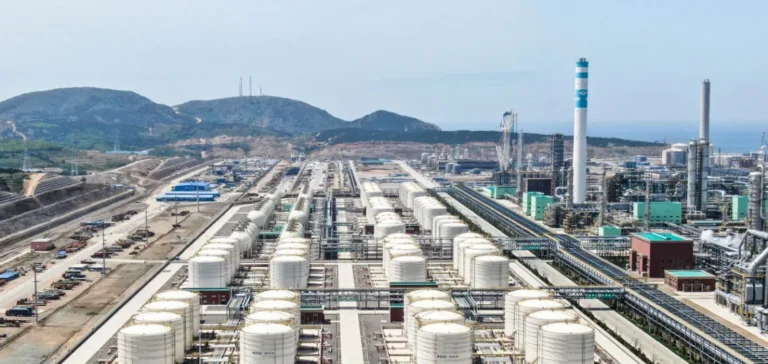Chinese independent refineries are adopting a wait-and-see stance regarding Iranian crude oil shipments as geopolitical tensions intensify in the Middle East. The recent escalation between Israel and Iran has raised increasing concerns about maritime transport security, particularly around the Strait of Hormuz, a crucial waterway for global oil trade. This situation is causing significant uncertainties, influencing the purchasing strategies of independent refineries primarily located in Shandong province, one of China’s major refining hubs. Despite these tensions, no hasty decisions to increase crude stocks are currently being considered, as refineries prefer to wait for a possible de-escalation.
Rising Costs and Iranian Crude Price Adjustments
In response to these uncertainties, Iranian Light crude oil prices have notably increased, currently offered at a discount of only $2 to $2.5 per barrel compared to Brent, versus a previous range of $2.5 to $3 per barrel. This rise is mainly due to higher insurance and maritime freight costs triggered by regional tensions and increased perceived risks in maritime transportation. Charter rates for Very Large Crude Carriers (VLCC) between the Persian Gulf and China have surged significantly by 66.7% within a week, climbing from $10.62 to $17.7 per metric ton. This rapid shift is compelling buyers to reassess short-term procurement strategies.
Growing Floating Stocks but Continued Caution
Despite recent price increases, Iranian crude volumes held in floating storage have risen considerably, reaching 30.8 million barrels from 23.5 million barrels previously, according to data from the specialized firm Kpler. This increase in floating stocks underscores the current caution of independent refineries in light of possible prolonged disruptions to supplies. The independent refining market remains impacted by a backwardation market structure, in which future crude oil prices are lower than current prices, thus reducing incentives to store significant volumes over the medium term. This market dynamic encourages refineries to remain vigilant regarding changes in geopolitical and economic conditions.
Low Margins and Diversification of Supplies
Furthermore, current low refining margins and moderate utilization rates—estimated around 49%—further limit refinery interest in making immediate additional purchases of Iranian crude. Seeking less risky alternatives has therefore become a priority, leading to renewed interest in Russian and Venezuelan crude oils, which are viewed as having more stable supply conditions and being less exposed to immediate geopolitical volatility. Consequently, Russian East Siberia Pacific Ocean (ESPO) crude trades around $2 per barrel below Brent prices, while Venezuelan Merey crude shows a substantial discount of approximately $6 per barrel, increasingly attracting Chinese buyers.
In this complex context, Chinese independent refineries must navigate cautiously, constantly adapting their strategies to rapid changes in the global oil market and inherent geopolitical risks associated with their supply choices.






















